| Portfolio | Holder | Term |
|---|
| Leader of the Liberal Democrats |  | Tim Farron MP | 2015–2017 |
| Deputy Leader of the Liberal Democrats |  | Jo Swinson MP | 2017–2019 |
| Shadow First Secretary of State |  | The Rt Hon Alistair Carmichael MP | 2016–2017 |
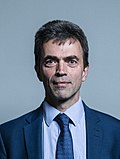 | The Rt Hon Tom Brake MP | 2017 |
| Spokesperson for the Treasury |  | The Rt Hon The Baroness Kramer PC | 2015–2017 |
 | The Rt Hon Sir Vince Cable Kt MP | 2017 |
| Chief Whip of the House of Commons |  | The Rt Hon Tom Brake MP | 2015–2017 |
 | The Rt Hon Alistair Carmichael MP | 2017–2020 |
| Spokesperson for Home Affairs | 2015–2016 |
 | The Rt Hon The Lord Paddick | 2016–2017 |
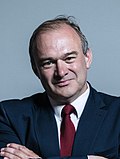 | The Rt Hon Sir Ed Davey FRSA Kt MP | 2017-2019 |
| Spokesperson for Foreign and Commonwealth Affairs |  | The Rt Hon Tom Brake MP | 2015–2017 |
 | Jo Swinson MP | 2017–2019 |
Spokesperson for Exiting the European Union
Spokesperson for International Trade |  | The Rt Hon Nick Clegg | 2016–2017 |
 | The Rt Hon Tom Brake MP | 2017–2019 |
| Spokesperson for Defence |  | The Rt Hon The Baroness Jolly | 2015–2017 |
| Shadow Leader of the House of Commons |  | The Rt Hon Tom Brake MP | 2015–2017 |
| Vacant | 2017 |
| Shadow Leader of the House of Lords |  | The Rt Hon The Lord Wallace of Tankerness QC PC | 2015–2016 [5] |
 | The Rt Hon The Lord Newby OBE PC | 2016–2025 [6] |
| Spokesperson for Health |  | The Rt Hon Norman Lamb MP | 2006–2017 |
| Spokesperson for Education | 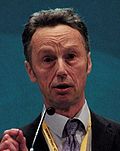 | John Pugh MP | 2015–2017 |
 | Sarah Olney MP | 2017 |
 | Layla Moran MP | 2017–2020 |
| Spokesperson for Work and Pensions |  | The Rt Hon The Baroness Manzoor CBE | 2015–2016 [7] |
 | The Rt Hon The Baroness Bakewell of Hardington Mandeville MBE | 2016–2017 |
 | Stephen Lloyd MP | 2017–2018 |
| Spokesperson for Business, Innovation, and Skills |  | The Rt Hon The Baroness Burt of Solihull | 2015–2016 |
| Spokesperson for Business and Industrial Strategy | 2016 |
 | The Rt Hon The Lord Foster of Bath PC | 2016–2017 |
 | The Rt Hon The Baroness Kramer PC | 2017 |
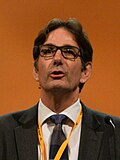 | The Rt Hon The Lord Fox | 2017 |
| Spokesperson for Energy and Climate Change |  | The Rt Hon The Baroness Featherstone PC | 2015–2019 |
| Spokesperson for Communities and Local Government |  | The Rt Hon Cllr The Baroness Thornhill MBE | 2015–2016 |
 | The Rt Hon The Baroness Pinnock | 2016–2017 |
 | Wera Hobhouse MP | 2017–2019 |
| Spokesperson for Transport |  | The Rt Hon The Baroness Randerson | 2015–2017 |
| Spokesperson for Environment, Food and Rural Affairs |  | The Rt Hon The Baroness Parminter | 2015–2017 |
| Spokesperson for International Development |  | The Rt Hon The Baroness Northover PC | 2015–2016 |
 | The Rt Hon The Baroness Sheehan | 2016–2017 |
| Spokesperson for Culture, Media and Sport | 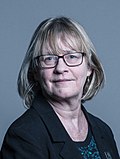 | The Rt Hon The Baroness Bonham-Carter of Yarnbury | 2015–2017 |
 | Christine Jardine MP | 2017 |
| Spokesperson for Equalities |  | The Rt Hon The Baroness Hussein-Ece OBE | 2015–2016 |
 | The Rt Hon The Baroness Burt of Solihull | 2016–2019 |
| Spokesperson for Justice |  | The Rt Hon The Lord Marks of Henley-on-Thames QC | 2015–2017 |
| Spokesperson for Northern Ireland |  | The Rt Hon The Lord Alderdice | 2015–2016 |
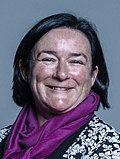 | The Rt Hon The Baroness Suttie | 2016–2017 |
 | The Rt Hon Alistair Carmichael MP | 2017–2020 |
| Spokesperson for Scotland | 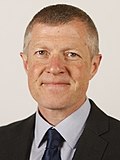 | Willie Rennie MSP | 2015–2017 |
 | Jamie Stone MP | 2017 |
| Spokesperson for Wales |  | Kirsty Williams CBE AM | 2015–2016 [8] |
 | Mark Williams MP | 2016–2017 [9] |
 | The Rt Hon The Baroness Humphreys of Llanrwst | 2017–2019 |
| Spokesperson for Refugees | | Amna Ahmad | 2017 |
 | Wera Hobhouse MP | 2017–present |
| Spokesperson for Young People |  | Daisy Cooper | 2017 |
 | Layla Moran MP | 2017–present |
| Chief Whip of the House of Lords |  | The Rt Hon The Lord Newby OBE PC | 2015–2016 |
 | The Rt Hon The Lord Stoneham of Droxford | 2016–present |
| Spokesperson for London | 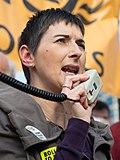 | Caroline Pidgeon MBE AM | 2016–present |
| Spokesperson for Europe |  | Catherine Bearder MEP | 2016–2020 |
| Liaison to the Alliance of Liberals and Democrats for Europe |
Spokesperson for Exiting the European Union
in the House of Lords | 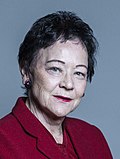 | The Rt Hon The Baroness Ludford | 2016–present |
| Leader of the Scottish Liberal Democrats |  | Willie Rennie MSP | 2015–2021 |
| Leader of the Welsh Liberal Democrats |  | Kirsty Williams CBE AM | 2015–2016 [10] |
 | Mark Williams | 2016–2017 [11] |
 | Kirsty Williams CBE AM | 2017 |
| Chair of Campaigns and Communications |  | Greg Mulholland MP | 2015–2017 |
 | The Rt Hon Sir Ed Davey FRSA Kt | 2017 |
| Campaign Spokespeople |  | Eluned Parrott | 2017 |
 | Jo Swinson |
 | Kirsty Williams CBE AM |
| Chair of the Association of Liberal Democrat Councillors | | Cllr Tim Pickstone | 2015–2017 |

















































